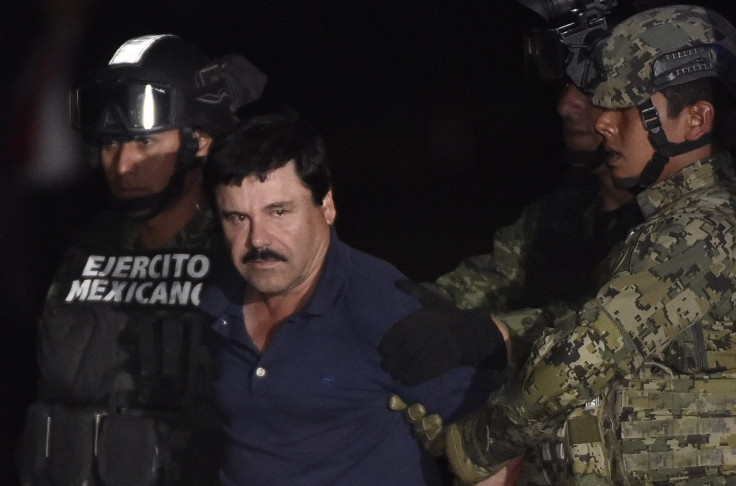Joaquin ‘El Chapo’ Guzman Update: Mexican Drug Czar’s Lawyers Move To Block US Extradition

In another twist to a story already brimming with action, drama, surprises, violence, U-turns and a whole host of other plot devices, Mexican drug lord Joaquin “El Chapo” Guzman now doesn’t want to be extradited to the United States. Two months ago, complaining of harsh treatment in a Mexican prison, the former leader of the Sinaloa drug cartel was trying to strike a deal with U.S. prosecutors to speed up his extradition.
Guzman’s lawyers told reporters at a press conference Friday in Mexico City they had filed an appeal Thursday against a decision by the country’s foreign ministry to extradite their client to the U.S.
“We have filed an appeal against the unconstitutional decision by the ministry of foreign affairs, against those who are in a big hurry for ‘El Chapo’ Guzman to leave for the United States,” one of the lawyers, Jose Luis Gonzalez, said.
Mexico’s Ministry of Foreign Affairs had authorized Guzman being handed over to U.S. authorities on May 6, a decision his lawyers call unconstitutional.
Juan Pablo Badillo Soto, another of Guzman’s lawyers at the press conference, said: “If the extradition goes ahead it will be a violation to the constitution,” and he also accused President Enrique Peña Nieto, Interior Minister Miguel Angel Osorio Chong and Foreign Minister Claudia Ruiz Massieu of “acting against the constitution.”
Earlier in the week, Jose Refugio Rodriguez, another lawyer for Guzman, said his client would not oppose his extradition if he could reach an agreement with U.S. authorities, something his team of lawyers, including some in the U.S., were working on.
In March, Guzman was very eager to be sent to the U.S. so he could be out of the El Altiplano maximum-security prison he was being held in, where his lawyers and wife said he was being tortured. At the time, Rodriguez said Guzman was ready to plead guilty to any “charges in the United States without questioning their veracity … in exchange for a reduction in the applicable sentence … [in] a medium-security prison.”
March was the first time Guzman had seemed willing to be extradited to the U.S. Before that, his legal team had vowed to block the move. The Mexican government itself was not in favor of extraditing Guzman — a long-standing U.S. demand — but changed its mind after the drug lord escaped from El Altiplano in July 2015, his second jailbreak. He was arrested again in January.
The latest move to block his extradition, which the Mexican government says fulfils the requirements of the Mexico-U.S. extradition treaty, comes because Guzman will never see his family again if he handed over to U.S. authorities, his lawyers said.
On May 7, a day after the Mexican government announced its decision to extradite Guzman, he was transferred from the maximum-security prison and is now being held in the border city of Ciudad Juarez, across from El Paso, Texas.
© Copyright IBTimes 2024. All rights reserved.











